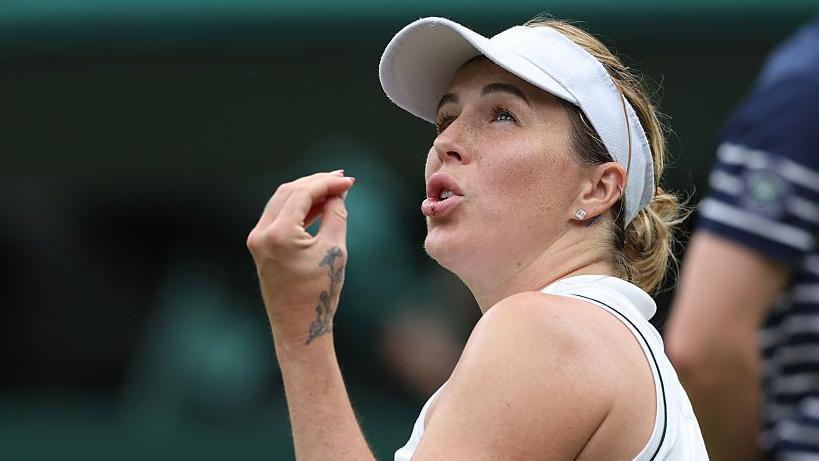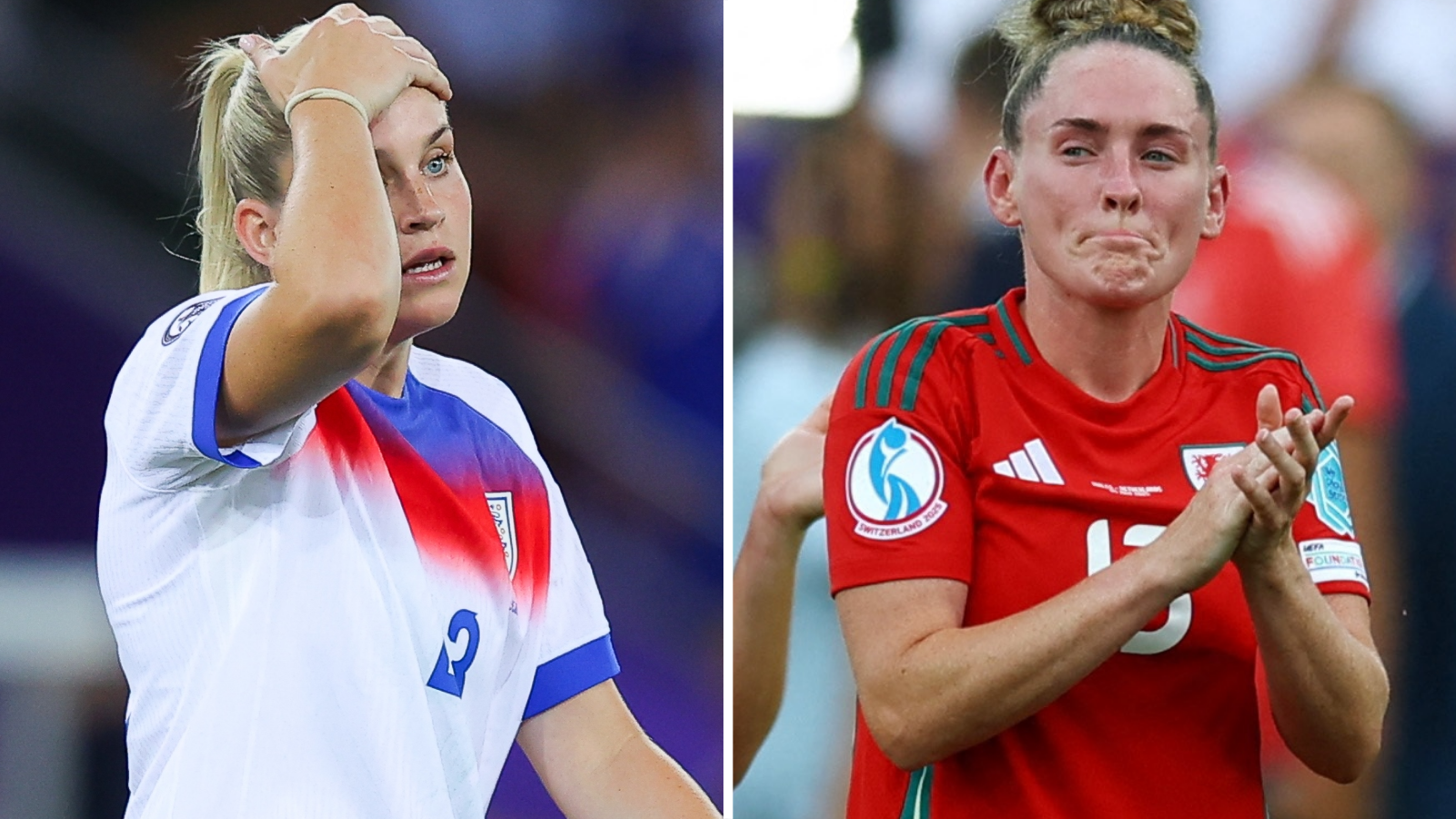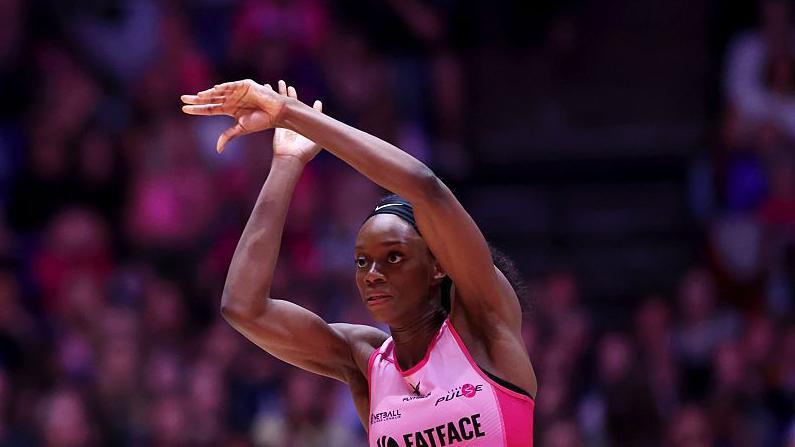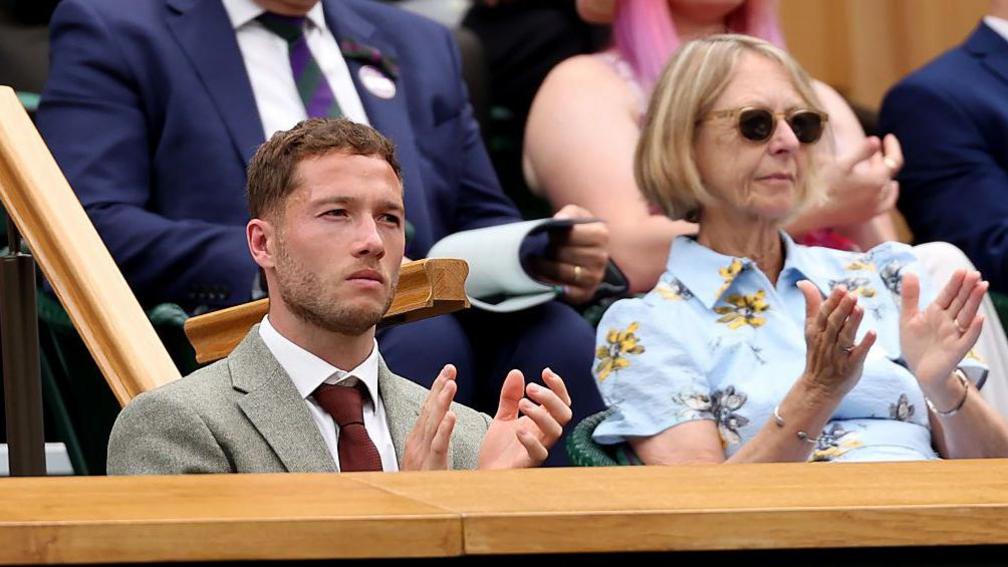For a few minutes on Sunday afternoon, Wimbledon’s Centre Court became the perfect encapsulation of the current tensions between humans and machines.
When Britain’s Sonay Kartal hit a backhand long on a crucial point, her opponent Anastasia Pavlyuchenkova knew it had landed out. She said the umpire did too. Television replays proved it.
But the electronic line-calling system – which means humans have been fully replaced this year following earlier trials – remained silent.
Minutes ticked by. The human umpire eventually declared the point should be replayed.
This time Pavlyuchenkova lost it. She went on to win the match but, in that moment, she told the umpire the game had been ‘stolen’ from her. She wondered aloud if it might be because Kartal was British.
It later emerged the reason was a more mundane, but still quintessentially human reason: someone had accidentally switched the line judge off.
That simple explanation hasn’t stopped disgruntled discussions that – unlike strawberries, Pimm’s and tantrums – the tech does not deserve a place among Wimbledon traditions.
John McEnroe might have been a lot less famous in his prime if he hadn’t had any human judges to yell at.
More recently, Britain’s Emma Raducanu expressed “disappointment” with the new technology after querying its decisions during her match on Friday
Former Wimbledon champion Pat Cash disagrees.
“The electronic line-calling is definitely better than the human eye,” he told the BBC.
“I have always been for it, since day one. Computer errors will come at times, but generally speaking, the players are happy with it.
“There have been a lot of conversations with players and coaches about the line-calling not being 100% this week. But it is still better than humans.”
He’s right: the tech is demonstrably more accurate than the human eye across various sports. Diego Maradona’s notorious ‘Hand of God’ goal at the 1986 World Cup would probably not have got past artificial intelligence.
Wimbledon’s electronic line-calling (ELC) system has been developed by the firm Hawk-Eye.
It uses 12 cameras to track balls across each court and also monitors the feet of players as they serve. The data is analysed in real time with the help of AI, and the whole thing is managed by a team of 50 human operators.
ELC has a rotation of 24 different human voices to announce its decisions, recorded by various tennis club members and tour guides.
It may use artificial intelligence to analyse the footage, but the All England Lawn Tennis Club says AI is not used to directly officiate. The club also says it remains confident in the tech, and CEO Sally Bolton told the BBC she believes it’s the best in the business.
“We have the most accurate officiating we could possibly have here,” she said.
To play this video you need to enable JavaScript in your browser.
So why don’t we trust this kind of tech more?
One reason is a collectively very strong, in-built sense of “fairness”, argues Professor Gina Neff from Cambridge University.
“Right now, in many areas where AI is touching our lives, we feel like humans understand the context much better than the machine,” she said.
“The machine makes decisions based on the set of rules it’s been programmed to adjudicate. But people are really good at including multiple values and outside considerations as well – what’s the right call might not feel like the fair call.”
Prof Neff believes that to frame the debate as whether humans or machines are “better” isn’t fair either.
“It’s the intersection between people and systems that we have to get right,” she said.
“We have to use the best of both to get the best decisions.”
Human oversight is a foundation stone of what is known as “responsible” AI. In other words, deploying the tech as fairly and safely as possible.
It means someone, somewhere, monitoring what the machines are doing.
Not that this is working very smoothly in football, where VAR – the video assistant referee – has long caused controversy.
It was, for example, officially declared to be a “significant human error” that resulted in VAR failing to rectify an incorrect decision by the referee when Tottenham played Liverpool in 2024, ruling a vital goal to be offside when it wasn’t and unleashing a barrage of fury.
The Premier League said VAR was 96.4% accurate during “key match incidents” last season, although chief football officer Tony Scholes admitted “one single error can cost clubs”. Norway is said to be on the verge of discontinuing it.
Despite human failings, a perceived lack of human control plays its part in our reticence to rely on tech in general, says entrepreneur Azeem Azhar, who writes the tech newsletter The Exponential View.
“We don’t feel we have agency over its shape, nature and direction,” he said in an interview with the World Economic Forum.
“When technology starts to change very rapidly, it forces us to change our own beliefs quite quickly because systems that we had used before don’t work as well in the new world of this new technology.”
Our sense of tech unease doesn’t just apply to sport. The very first time I watched a demo of an early AI tool trained to spot early signs of cancer from scans, it was extremely good at it (this was a few years before today’s NHS trials) – considerably more accurate than the human radiologists.
The issue, its developers told me, was that people being told they had cancer did not want to hear that a machine had diagnosed it. They wanted the opinion of human doctors, preferably several of them, to concur before they would accept it.
Similarly, autonomous cars – with no human driver at the wheel – have done millions of miles on the roads in countries like the US and China, and data shows they have statistically fewer accidents than humans. Yet a survey carried out by YouGov last year suggested 37% of Brits would feel “very unsafe” inside one.
I’ve been in several and while I didn’t feel unsafe, I did – after the novelty had worn off – begin to feel a bit bored. And perhaps that is also at the heart of the debate about the use of tech in refereeing sport.
“What [sports organisers] are trying to achieve, and what they are achieving by using tech is perfection,” says sports journalist Bill Elliott – editor at large of Golf Monthly.
Related topics
- Tennis







